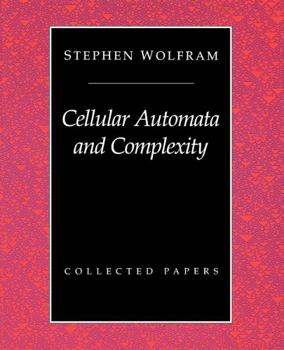Cellular Automata And Complexity: Collected Papers
Select Format
Select Condition 
Book Overview
Are mathematical equations the best way to model nature? For many years it had been assumed that they were. But in the early 1980s, Stephen Wolfram made the radical proposal that one should instead build models that are based directly on simple computer programs. Wolfram made a detailed study of a class of such models known as cellular automata, and discovered a remarkable fact: that even when the underlying rules are very simple, the behavior they produce can be highly complex, and can mimic many features of what we see in nature. And based on this result, Wolfram began a program of research to develop what he called ?A Science of Complexity.'The results of Wolfram's work found many applications, from the so-called Wolfram Classification central to fields such as artificial life, to new ideas about cryptography and fluid dynamics. This book is a collection of Wolfram's original papers on cellular automata and complexity. Some of these papers are widely known in the scientific community; others have never been published before. Together, the papers provide a highly readable account of what has become a major new field of science, with important implications for physics, biology, economics, computer science and many other areas.
Format:Paperback
Language:English
ISBN:0201626640
ISBN13:9780201626643
Release Date:February 1994
Publisher:CRC Press
Length:608 Pages
Weight:2.05 lbs.
Dimensions:1.1" x 7.2" x 8.9"
Customer Reviews
1 rating
Nice coverage of Wolframs published work
Published by Thriftbooks.com User , 26 years ago
This is a nice collection of wolframs work on cellular automata (which first appeared as a number of papers in various physics journals). It is a nice coverage of cellular automata, but it would have been nice to give more credit to von Neuman for his pioneering work in cellular automata theory.There is also an annoying habit for all of his work to concentrate on deterministic cellular automata, and the mathematics is constrained to this. Recent work has indicated that the origin of complexity in our universe is from random sources that are preserved.. not that the complexity all came from the initial conditions. It is especially interesting to note in his book how the different rules of cellular automata play out to create varying degrees of complexity. It takes a very specific rule set indeed to allow for interesting complex behaviors to show up, as evinced by the long search Conway undertook to discover "life".Hopefully Wolfram will comment on the recent research that indicates that complexity is introduced into our universe through nondeterministic phenomena. He also should have presented Fredkins ideas about reversible computation to more fully flush out the relationship between cellular automata, computability and reversibility.





